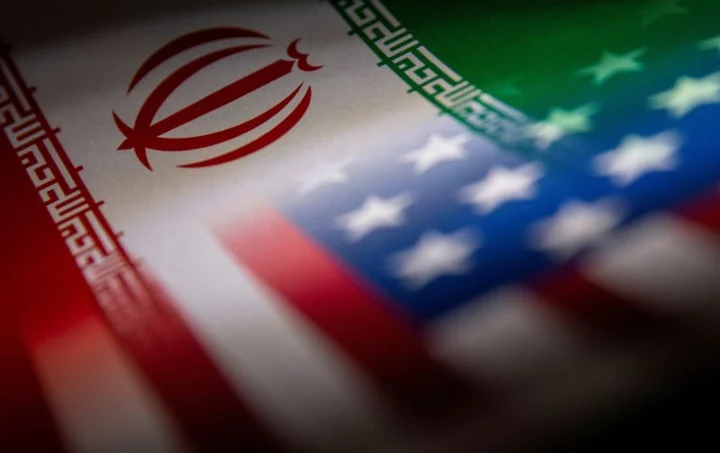By Arshad Mohammed
WASHINGTON (Reuters) -Four U.S. citizens detained by Iran have left Tehran's Evin prison and are now under house arrest, a lawyer for one of them told Reuters on Thursday, saying he hoped this was a step toward them eventually leaving the Islamic Republic.
The Iranian Americans include businessmen Siamak Namazi, 51, and Emad Shargi, 58, as well as environmentalist Morad Tahbaz, 67, who also has British nationality, said Jared Genser, a lawyer who represents Namazi. The fourth U.S. citizen's identity has not been made public.
"The move by Iran of the American hostages from Evin Prison to an expected house arrest is an important development," Genser said in a statement. "While I hope this will be the first step to their ultimate release, this is at best the beginning of the end and nothing more .... There are simply no guarantees about what happens from here."
Freeing the four would remove a major irritant between the United States and Iran, though the nations remain at odds on issues from the Iranian nuclear program to Tehran's support for Shi'ite militias in nations such as Iraq and Lebanon.
Namazi, who in 2016 was convicted of espionage-related charges the United States has rejected as baseless, has been detained by Iran for more than seven years. His father, Baquer, was allowed to leave Iran in October for medical treatment after being detained on similar charges also rejected by Washington.
Tahbaz was arrested in 2018 and sentenced to 10 years in prison for "assembly and collusion against Iran's national security" and working for the United States as a spy. Shargi was convicted of espionage in 2020 and also sentenced to 10 years.
Iranian Americans, whose U.S. citizenship is not recognized by Tehran, are often pawns between the two nations, which are at odds over issues including Iran's expanding nuclear program.
In February, NBC News reported Washington and Tehran were holding indirect talks exploring a prisoner exchange and the transfer of billions of dollars of Iranian funds in South Korean banks currently blocked by U.S. sanctions. If transferred, those funds could only be spent for humanitarian purposes.
Any transfer could draw Republican criticism that President Joe Biden, a Democrat, had effectively paid a ransom for the U.S. citizens and that Iran using that money for humanitarian purposes could free up funds for its nuclear program or to support militias in nations such as Iraq, Lebanon and Yemen.
(Reporting by Arshad Mohammed; Editing by Mark Porter and Lisa Shumaker)









